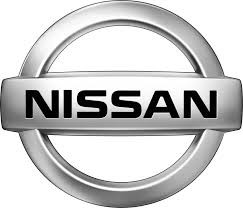The global car industry is going through big changes, with Japan and China competing to lead the way. While Japan has long been known for its reliable and innovative cars, China is quickly becoming a major player, especially in the electric vehicle (EV) market.
Let’s take a closer look at how these two countries are shaping the future of cars.
Japan’s Legacy of Great Cars


Japan is home to some of the world’s most trusted car brands like Toyota, Honda, and Nissan. These companies are known for building reliable, fuel-efficient, and durable vehicles. Toyota, for example, has led the car market for years and was the first to introduce hybrid cars with its famous Prius.
As per the Leaders Asia sources, Japanese automakers have also been working on green technologies, focusing on hybrids and even hydrogen-powered cars. However, they’ve been slower to produce fully electric cars compared to competitors in Europe, the U.S., and China. With increasing demand for EVs globally, Japan is starting to speed up its efforts to stay relevant.
Challenges for Japan
Japanese carmakers face tough competition from China, especially in the EV market. On top of that, Japan’s aging population and shrinking domestic market mean they need to rely more on selling cars overseas. To stay on top, Japanese companies need to invest more in electric and self-driving technology.
China’s Rapid Growth
China has quickly become a leader in the car industry, especially in EVs. Companies like BYD, NIO, and Xpeng are making affordable and high-tech electric cars that are grabbing attention worldwide. In fact, BYD has become the largest EV maker in the world, surpassing Tesla in 2023.

According to the Leaders Asia sources, China’s success is largely due to strong government support, which includes subsidies for buyers and massive investments in charging stations and battery technology. Chinese automakers are also leading the way in self-driving technology and smart cars, making them serious competitors in the global market.
Challenges for China
Although Chinese cars are gaining popularity, they still struggle with a perception of lower quality compared to Japanese and Western brands. Chinese automakers also face strict regulations and safety standards in international markets like Europe and the U.S.
Who Leads the Way?
Japan and China have different approaches to the future of cars. Japan relies on its legacy of trusted, high-quality vehicles and hybrid technology, but it needs to catch up in the electric car race. China, on the other hand, is pushing forward with disruptive innovations in EVs, batteries, and self-driving tech.
Looking Ahead
The future of the car industry is undoubtedly electric. Japanese automakers must adapt quickly to the demand for EVs and embrace new technology to compete. Meanwhile, China is well-positioned to lead the way in electric and smart cars as it expands into global markets.
Together, Japan and China are shaping the future of transportation, and their competition will drive exciting innovations that benefit the entire world.








